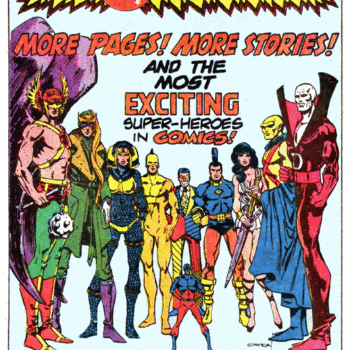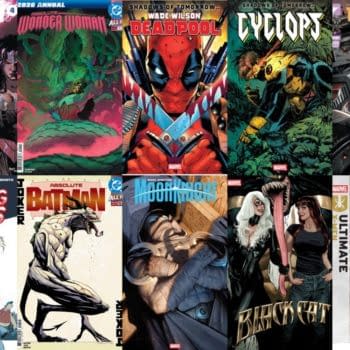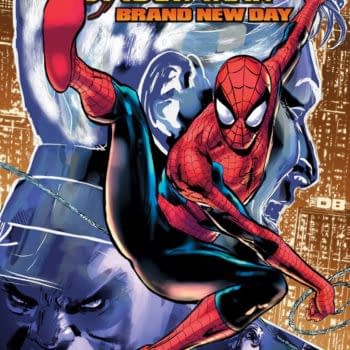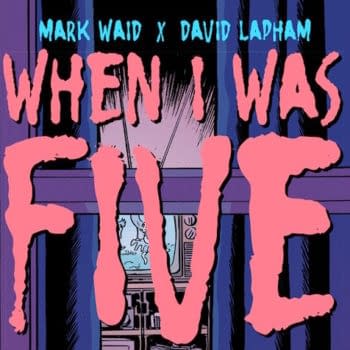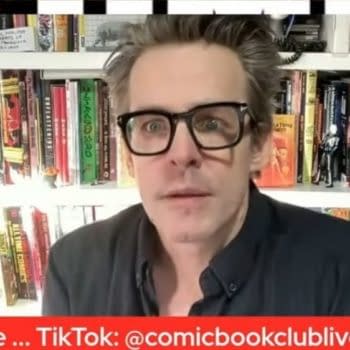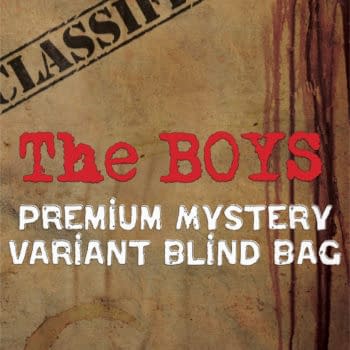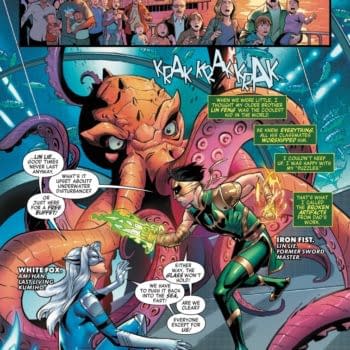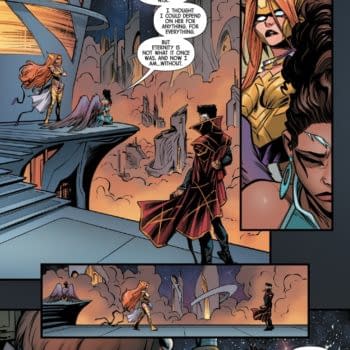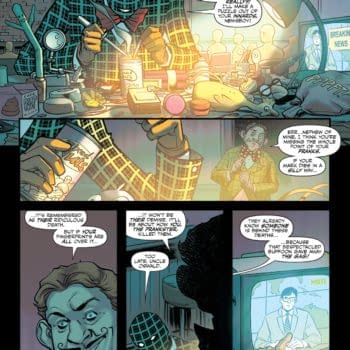Posted in: Comics, Recent Updates | Tagged:
Neil Gaiman, The CBLDF, SPX, and Cody Pickrodt
There have also been a number of calls on social media for the Comic Book Legal Defense Fund to step in to help represent comic book creators, currently subject to a 2.5 million dollar defamation lawsuit from comic creator and publisher Cody Pickrodt. A number of allegations appeared in a Google Doc published last year, similar to the Shitty Media Men document that was more widely shared.
The CBLDF these days mostly involve themselves with the likes of libraries being challenged over LGBTQ content of comic books, and free speech education with emphasis on the First Amendment. And it's the First Amendment focus that is the most relevant here, specifically government censorship and the CBLDF's charter concerns cases that are affected by that. So arrests for obscenity, public or school library challenges or border issues have formed the majority of their fights.
However, there has been some wiggle room. Most notably helping Joe Lansdale, Tim Truman and Sam Glanzman successfully fight off a defamation lawsuit from the Winter Bros over the comic book Riders Of The Worm And Such. However, that was about defending the legitimacy of satire and parody in regards to public figures, with the Winter Bros claimed the parody constituted defamation. That was a civil case that the CBLDF might not have bothered themselves with – but did.
Neil Gaiman, who used to be on the board of directors of the CBLDF has talked about the issue.
Is that true about the Google Doc? Because wouldn't Todd McFarlane have had a case to appeal to the CBLDF for funding to defend against Neil Gaiman, if it could have been argued that his publication decisions counted as free speech? I thought I'd ask…
And what about when Tony Twist successfully sued and bankrupted Todd's company over the character Tony Twisterelli that appeared in Spawn comics? Because as far as we can see, that didn't happen either.
But the thing is, in no way would it be a First Amendment issue. I asked an industry executive who has been involved in many a similar case told me,
In short: while the CBLDF has involved themselves with various 1st Amendment cases before, it's usually in the area of censorship of artistic expression, not censorship of possibly defamatory speech between people. Defamation, while covered under the 1A, isn't usually their area and the skillsets and legal precedents are somewhat different. In America, truth is an absolute defense to libel and slander, and has been since before the colonies declared independence (John Paul Zenger, 1734.) . But, as has been pointed out, lawsuits can be pricey as hell.
Regarding the case, as it has been reported,
The crucial issue will be one of discovery. There are going to have to be a LOT of documents and depositions, considering the number of potential defendants. At $400/hour for a full day deposition for 11 defendants, that's $35K right there.
Public figures can win a suit for libel only if they could demonstrate "actual malice" on the part of reporters or publishers, in other words, if they published with intent to harm or without caring whether the information was true or false. The standard is lower for private individuals, which is why Pickrodt is claiming he isn't a public figure.
That said, under defamation laws in most states, falsely accusing someone of having committed a crime is considered "defamatory per se" or "actionable per se." That means harm is taken as a given in the eyes of the law, and harm to your reputation is presumed. So the rape allegation is a problem, and a determination will probably have to be made. However, I believe that he has to prove that no rape occurred, which will be difficult.
There have also been concerns expressed that past sexual harassment allegations against CBLDF Executive Director Charles Brownstein might stop them from involving themselves in such a case.
Regarding this case, however, CBLDF tweeted in response,
So here's the issue. The CBLDF does not fight non-First Amendment cases – except when it does. A bit. However, they do perform other actions, issuing letters of support or condemnation for matters of censorship, even when they do not involve the government (and according to the definition, it doesn't actually need government involvement to be censorship).
And it may just be that in their tweet, they are stating that's what they are doing, according to their charter,
Wherever we can, CBLDF attempts to refer individuals or businesses seeking our help to the appropriate lawyers or organizations that can help them.
Asking more questions to more people, I understand that, yes, the CBLDF has been involving themselves in this case. But with eleven defendants, getting permission from them all to even tweet about it and to protect from disseminating misinformation is difficult at this point and it is not their case to discuss.
I am told not to expect the CBLDF to take the case officially, regarding their charter, but to assisting behind the scenes, including fundraising efforts, but how much of that goes public will depend on the defendants.
I am also expecting a response from SPX, the small press comic convention that the defendants – and accuser – have regularly attended, and who regularly raises large sums of money for the CBLDF. Their upcoming show is in two weeks in Bethesda, Maryland. I anticipate a joint effort from them both regarding this.
Also, expect Christina Merkler of online comic book store DCBS (Discount Comic Book Services) to be announced the new CBLDF board president, replacing the long-serving Larry Marder, after being voted in during San Diego Comic-Con. She may have something to say on this matter as well.
It's going to be a busy couple of weeks.






